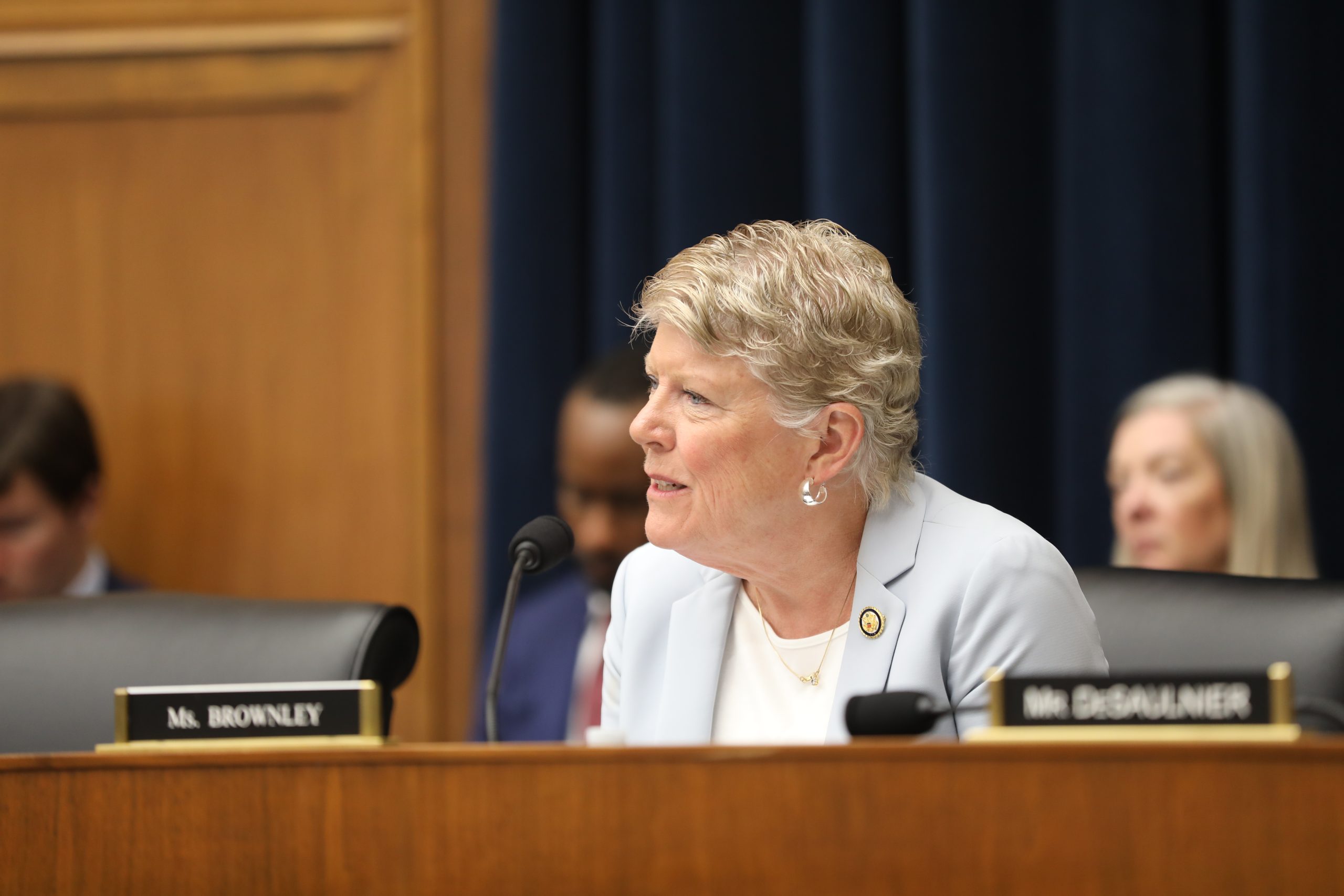
Washington, DC – Today, Congresswoman Julia Brownley (CA-26) announced the introduction of the Veterans’ Surviving Spouse Equity Act, legislation to ensure surviving spouses of veterans are not unfairly denied benefits due to outdated marriage laws. The bill would align spousal benefits eligibility between the Social Security Administration (SSA) and the Department of Veterans Affairs (VA) and correct long-standing inconsistencies in VA law that prevent veteran spouses from accessing the survivor benefits their life partners earned in service to our country.
“After hearing from a constituent who was denied survivor benefits because of outdated marriage laws, I introduced this bill to rectify this wrong,” said Congresswoman Julia Brownley. “She had spent years caring for her veteran spouse, yet after his passing, she was left to navigate a cold and unforgiving bureaucracy that refused to recognize their life together. Sadly, her story is not unique. Across the country, too many surviving spouses are being forced to navigate a bureaucratic maze of outdated and inconsistent marriage laws at one of the most difficult times in their lives – after the loss of their life partner. The Veterans’ Surviving Spouse Equity Act will ensure these spouses are seen, heard, and treated with the dignity and respect they deserve. When a veteran serves our country, their family serves too. It’s time our laws reflect that.”
Under current law, surviving spouses are eligible for Dependency and Indemnity Compensation (DIC) benefits; however, eligibility is limited to spouses who were married to the veteran for at least one year or who had a child with the veteran. A significant challenge for surviving spouses of veterans is that VA relies on inconsistent definitions of marriage to determine eligibility for survivor benefits. These rules lead to unfair outcomes, denying benefits to long-term partners whose relationships don’t fit narrow legal criteria.
While the VA recognizes informal unions like common-law marriages in some cases, eligibility often depends on a confusing patchwork of state laws and a couple’s awareness of those laws. For example, a couple in a common-law marriage living in California (a state that does not recognize common-law marriage) may be denied benefits, while a similar couple in Colorado would qualify. To make matters worse, surviving spouses who know their state does not recognize common-law marriage can actually be at a disadvantage when applying for survivor benefits.
Additionally, the law requires that couples be legally married for at least one year for the surviving spouse to receive benefits. This arbitrary rule means someone who lived with and cared for a veteran for many years but was legally married for only six months may be denied benefits, while someone married for just over a year would qualify. In some instances, VA has even determined that a civil or religious marriage within the last year of a veteran’s life terminates an existing common-law marriage, restarting the one-year clock and further complicating eligibility.
Unlike VA, the Social Security Administration (SSA), pursuant to Section 1614 of the Social Security Act, permits a spouse to qualify for survivor benefits if they hold “themselves out to the community in which they reside as husband and wife.”
The Veterans Surviving Spouse Equity Act would synchronize spousal qualifications between SSA and VA, allowing VA to recognize a surviving spouse if they lived with the veteran in the same household for at least one year continuously until the veteran’s death, and if the couple held themselves out as married to their community, regardless of whether there was a legal or religious marriage during that year.
The Veterans’ Surviving Spouse Equity Act is endorsed by Minority Veterans of America.
Read the full text of the bill here.
###
Issues: 119th Congress, Veterans' Affairs